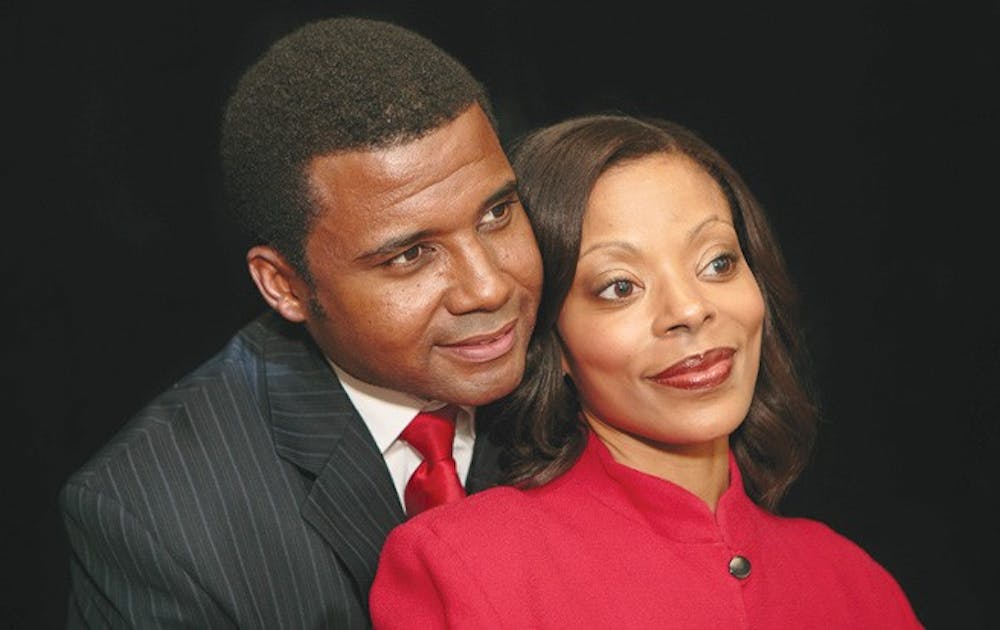It’s unlikely that Pulitzer Prize-winning playwright August Wilson would have chosen The Spice Girls as pre-show music for Radio Golf, the concluding play in his 10-part series The Pittsburgh Cycle. Yet Deep Dish Theater Company believed it was an appropriate introduction to his highly political play that documents the struggle of black Americans against de facto segregation and urban redevelopment. While the Chapel Hill venue did advertise their season-opening performance as a “comic drama,” the girl group’s hit “Wannabe” created a misleading atmosphere for a work that deals with gentrification and the widening socioeconomic gap between poverty-line blacks and elites.
On the surface, the synopsis of Radio Golf doesn’t suggest much room for punch lines: the two-act courtroom-style drama follows the career of savvy realtor and aspiring mayor Harmond Wilks (Mike Wiley) as he balances a commitment to his inner-city roots and his dreams of political office. His wife Mame (Hazel Edmond) and business partner/friend Roosevelt (Nilan Johnson) push him to develop a shopping mall that threatens the lower-income, mostly black Hill District. Meanwhile, the “little man” fights back—freelance contractor Sterling Johnson (Phillip Bernard Smith) and a war vet who calls himself “Old Joe” (Warren Keyes) come down from “The Hill” hoping to protect a historic residence from the wrecking ball.
In an attempt to offset the “straight man” protagonist, Old Joe, Sterling and Roosevelt are intended as comic relief and did their job brilliantly. They burst into the sitcom-style three-paneled set with Kramer-esque bravado; Keyes as Old Joe especially nailed his one-liners. However, director Kathryn Hunter-Williams exaggerates the comedic aspects of the play so much that they infringe on the narrative’s believability. Wiley’s tone as Harmond was a touch too cartoonish and his vocal pacing far too rhythmic to be taken seriously as the central character. Furthermore, the romantic connection between Harmond and Mame seemed to be treated like a formality of the script rather than the skeleton of the drama as a whole. It didn’t help that I could barely hear Edmond’s line delivery from only five rows out; Mame came across half as strongly as the powerful woman she is written to be.
Questionable music choices aside, the Spice Girls weren’t the only bizarre contradiction I noticed last Sunday at the matinee showing. The location of the theater and the attending demographic were also ironic. All but four members of the audience that day were white, seeing an all-black cast. My friend and I were the only ones under sixty-five watching a play about yuppies. Moreover, the performance took place inside a high-end mall, the same kind of development project that Old Joe and Sterling criticize. Despite this, or maybe because of this, the production felt chillingly relevant, especially considering the trend towards urban renewal in the Triangle area. Hunter-Williams’ comic drama is amusing, but lacks the sociopolitical gravity that the final installment of a monumental play series deserves.
Get The Chronicle straight to your inbox
Signup for our weekly newsletter. Cancel at any time.

